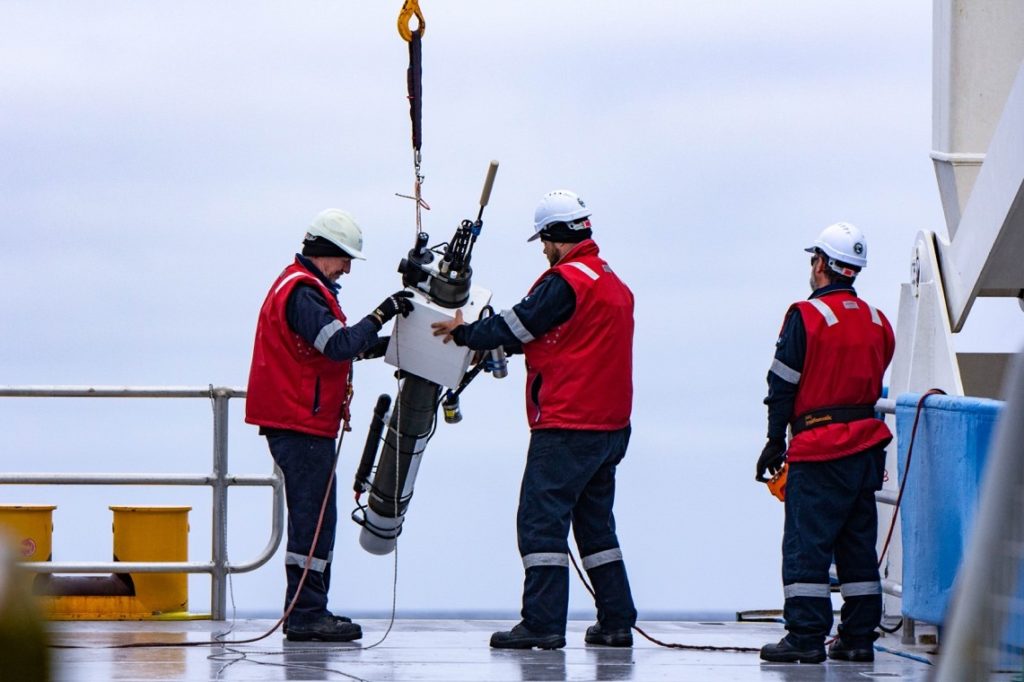Projected ocean warming constrained by the ocean observational record

Researchers deploy an Argo float from RV Investigator. Image credit: Jakob Weis, UTAS (2020)
An accurate estimate of global ocean warming is critical in tracking the Earth’s energy imbalance and assessing the status of current and future climate change. In a paper published this month in Nature Climate Change, CSHOR researchers, Drs Lyu and Zhang and Prof Church, report that improved ocean observations in the past 15 years can be used to reduce uncertainties in climate model projections of 21st century ocean warming.
The authors show that the observed ocean warming over the well-sampled Argo (Autonomous underwater sampling floats) period (2005–2019) can constrain projections of future ocean warming, and that the upper-tail projections from latest climate models with high climate sensitivities are unrealistically large. By 2081–2100, under a high-emission scenario, the upper 2,000 metres of the ocean is likely (>66% probability) to warm by 1,546–2,170 zettajoules (ZJ) relative to 2005–2019, corresponding to 17–26 cm sea-level rise from thermal expansion.
Dr Kewei Lyu, CSHOR Postdoctoral Fellow, is interviewed for The Conversation weekly podcast – Have climate change predictions matched reality? Podcast (theconversation.com).
The authors have also written an enlightening article for The Conversation.
The Nature Climate Change article is available here.